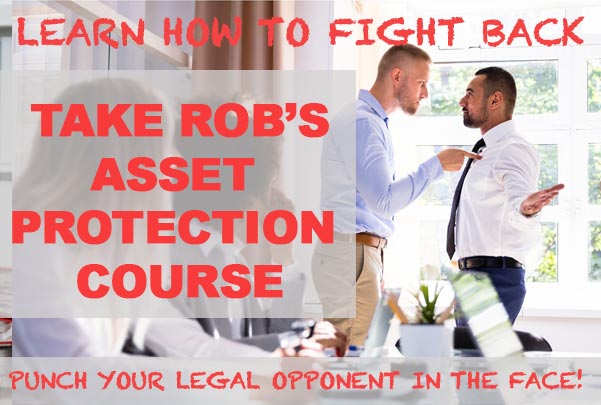Cayman Islands Trust
(Foreign Element) Law, 1987; and Fraudulent Dispositions Law, 1989
Cayman Islands
Supplement No. 2 printed with Gazette No. 2 of 1987
THE TRUST (AMENDMENT) LAW, 1986
CAYMAN ISLANDS
Law 18 of 1986
I Assent
PETER LLOYD
Governor
23rd December, 1986
A LAW TO AMEND THE TRUSTS LAW (REVISED)
ENACTED by the Legislature of the Cayman Islands.
1. This Law may be cited as the Trusts (Amendment )Law, 1986.
2. Section 82 of the Trusts Law (Revised) is amended by inserting, in subsection (1), the following new definition immediately after the definition of ”beneficiary” —
” ”person domiciled in the Islands” does not include a company incorporated in the Islands which is an exempted company or a non-resident company, as defined in subsection (1) of section 2 of the Companies Law;”. Passed the Legislative Assembly this 24th day of November 1986.
PETER LLOYD
President.
E. GAY JACKSON
Clerk of the Legislative Assembly.
Supplement No. 15 printed with Gazette No. 13 of 1987
THE TRUSTS (FOREIGN ELEMENT) LAW, 1987
(LAW 17 OF 1987)
CAYMAN ISLANDS
Law 17 of 1987
I Assent
PETER LLOYD
Governor
28th May, 1987
A LAW TO DEAL WITH THE CREATION OF TRUSTS, AND MATTERS CONNECTED THEREWITH AND INCIDENTAL THERETO.
ENACTED by the Legislature of the Cayman Islands.
1. This law may be cited as the Trust (Foreign Element) Law, 1987 and shall come into force on the thirty-first day of May 1987.
2. (1) In this Law unless the context otherwise requires: —
”dispose” and ” disposition” in relation to property connote every form of conveyance, transfer, assignment, lease, mortgage, pledge or other transaction by which any legal or equitable interest in property is created, transferred or extinguished;
”formalities” in relation to a disposition of property means the documentary and other actions required generally by the laws of a relevant jurisdiction for all dispositions of like form concerning the property of like nature, without regard to: —
(a) the fact that the particular disposition is made in trust,
(b) the terms of the trust,
(c) the circumstances of the parties to the disposition, or
(d) any other particular circumstances, but include any special formalities required by reason that the party affecting the disposition is not of full age, is subject to a mental or bodily infirmity or is a corporation.
”heirship right” means any right, claim or interest in, against or to the property of a person arising or accruing in consequence of that person’s death, other than any such right, claim or interest created by will or other voluntary disposition by such person or resulting from an express limitation in the disposition of the property to such person:
”personal relationship” includes every form of relationship by blood or marriage, including former marriage, and in particular, a personal relationship between two persons exists if: —
(a) one is the child of the other, natural or adopted (whether or not the adoption is recognized by law), legitimate or illegitimate; or
(b) one is married to the other (whether or not the marriage is recognized by law); or
(c) one cohabits with the other or so conducts himself or herself in relation to the other as to give rise in any jurisdiction to any rights, obligations or responsibilities analogous to those of parent and child or husband and wife; or (d) personal relationships exist between each of them and a third person,
but no change in circumstances causes a personal relationship, once established, to terminate.
”settlor” in relation to a trust means and includes each and every person who, directly or indirectly, on behalf of himself or on behalf of any other or others, as owner or as the holder of power in that behalf, disposes of property to be held in such trust or declares or otherwise creates such trust.
(2) Terms and expressions defined in the Trusts Law (Revised) have the same meanings in this Law.
3. This Law applies to every trust and every disposition of property in trust made before or after the commencement of this Law, whether such property is situated in the Islands or elsewhere.
4. (1) In determining the governing law of a trust regard is first to be had to the terms of the trust and to any evidence therein as to the intention of the parties; and the other circumstances of the trust are to be taken into account only if the terms of the trust fail to provide such evidence.
(2) A term of the trust expressly selecting the laws of the Islands to govern the trust is valid, effective and conclusive regardless of any other circumstances.
(3) A term of the trust that the laws of the Islands are to govern a particular aspect of the trust or that the Islands or the courts of the Islands are the forum for the administration of the trust or any like provision is conclusive evidence, subject to any contrary term of the trust, that the parties intended the laws of the Islands to be the governing law of the trust and is valid and effective accordingly.
(4) If the terms of trust so provide, the governing law of the trust may be changed to or from the laws of the Islands provided that —
(i) in the case of a change to the law of the Islands, such change is recognized by the governing law of the trust previously in effect;
(ii) in the case of a change from the law of the Islands, the new governing law would recognize the validity of the trust and the respective interests of the beneficiaries.
(5) A change in governing law shall not affect the legality or validity of, or render any person liable for, anything done before the change.
5. All questions arising in regard to a trust which is for the time being governed by the laws of the Islands or in regard to any disposition of property upon the trusts thereof including, without prejudice to the generality of the foregoing, questions as to —
(i) the capacity of any settlor,
(ii) any aspect of the validity of the trust or disposition or the interpretation or effect thereof,
(iii) the administration of the trust, whether the administration be conducted in the Islands or elsewhere, including questions as to the powers, obligations, liabilities, and rights of trustees and their appointment and removal, or
(iv) the existence and extent of powers, conferred or retained, including powers of variation or revocation of the trust and powers of appointment, and validity of any exercise thereof, are to be determined according to the laws of the Islands, without reference to the laws of any other jurisdictions with which the trust or disposition may be connected, provided only that —
(a) this section does not validate any disposition of property which is neither owned by the settlor nor the subject of power in that behalf vested in the settlor nor does this section affect the recognition of foreign laws in determining whether the settlor is the owner of such property or the holder of such a power;
(b) this section takes effect subject to any express contrary term of the trustor disposition;
(c) as regards the capacity of a corporation this section does not affect the recognition of the laws of its place of incorporation;
(d) this section does not affect the recognition of foreign laws prescribing generally (without reference to the existence or terms of the trust) the formalities for the disposition of property;
(e) this section does not validate any trust or disposition of real property situated in a jurisdiction other than the Islands which is invalid according to the laws of such jurisdiction;
(f) this section does not validate any testamentary trust or disposition which is invalid according to the laws of the testator’s domicile.
6. Without limiting the generality of the foregoing section, it is expressly declared that no trust governed by the laws of the Islands and no disposition of property to be held upon the trusts thereof is void, voidable, liable to be set aside or defective in any fashion, nor is the capacity of any settlor to be questioned by reason that: —
(a) the laws of any foreign jurisdiction prohibit or do not recognize the concept of a trust; or
(b) the trust or disposition avoids or defeats rights, claims or interests conferred by foreign law upon any person by reason of a personal relationship to the settlor or by way of heirship rights, or contravenes any rule of foreign law or any foreign judicial or administrative order or action intended to recognize, protect, enforce or give effect to any such rights, claims or interests.
7. This Law does not render any person liable for anything done before its commencement.
Passed the Legislative Assembly this 29th day of April 1987.
PETER LLOYD
President.
GEORGETTE MYRIE
Clerk of the Legislative Assembly.
Supplement No. 9 published with Gazette No. 24 of 1989
THE FRAUDULENT DISPOSITIONS LAW, 1989
(LAW 15 OF 1989)
CAYMAN ISLANDS
Law 15 of 1989
I Assent
ALAN SCOTT
Governor
6th November, 1989
A LAW TO AMEND THE LAW RELATING TO DISPOSITIONS MADE WITH AN INTENT TO DEFRAUD
ENACTED by the Legislature of the Cayman Islands.
1. This law may be cited as the Fraudulent Dispositions Law, 1989, and shall come into force upon a date to be appointed (the ”appointed date”).
2. In this Law:
”creditor” means a person to whom an obligation is owed:
”disposition” shall have the same meaning as in the Trusts (Foreign Element) Law, 1987:
”intent to defraud” means an intention of a transferor wilfully to defeat an obligation owed to a creditor:
”obligation” means any obligation or liability (which shall include a contingent liability) which existed on or prior to the date of a relevant disposition and of which the transferor had notice:
”relevant disposition” means a disposition to which section 4(1) applies:
”transferor” means the person who as owner or as the holder of a power in that behalf directly or indirectly makes a relevant disposition or causes it to be made;
”transferee” means the person to whom a relevant disposition is made and shall include any successor in title;
”undervalue” in relation to a disposition of property means:
(a) the provision of no consideration for the disposition: or
(b) consideration for the disposition the value of which is money or money’s worth is significantly less than the value of the property the subject of the disposition.
3. With effect from the appointed date this Law shall apply in place of the law in effect prior to the appointed date to every disposition of property made before or after the appointed date by any person and whether or not the property, the subject of the disposition, is situated in the Islands or elsewhere; save that in any action or proceeding commenced prior to the appointed date or within six months of the appointed date but in respect of a disposition made prior to the appointed date this Law shall have no application and the law to be applied shall be that in effect prior to the appointed date.
4. (1) Subject to the provisions of this Law, every disposition of property made with an intent to defraud and at an undervalue shall be voidable at the instance of a creditor thereby prejudiced.
(2) The burden of establishing an intent to defraud for the purposes of this Law shall be upon the creditor seeking to set aside the disposition.
(3) No action or proceeding shall be commenced pursuant to this Law unless commenced within six years of the date of the relevant disposition. 5. In the event that any disposition shall be set aside pursuant to this Law, then —
(a) if the Court is satisfied that the transferee has not acted in bad faith :
(i) the transferee shall have a first and paramount charge over the property, the subject of the disposition, of an amount equal to the entire costs properly incurred by the transferee in the defense of the action or proceedings to set aside (and not merely such costs as might otherwise be allowed by the Court), and
(ii) the relevant disposition shall be set aside subject to the proper fees, costs, pre-existing rights, claims and interests of the transferee (and of any predecessor transferee which has not acted in bad faith); and
(b) if the Court is satisfied that a beneficiary of a trust has not acted in bad faith the disposition shall only be set aside subject to the right of such beneficiary to retain any distribution made consequent upon the prior exercise of trust, power or discretion vested in the trustee of such trust, or any other person, and otherwise properly exercised.
6. A disposition shall be set aside pursuant to this Law only to the extent necessary to satisfy the obligation to a creditor at whose instance the disposition has been set aside together with such costs as the Court may allow.
7. Nothing in this Law shall validate any disposition of property which is neither owned by the transferor nor the subject of power in that behalf vested in the transferor and nor does this Law affect the recognition of foreign laws in determining whether the transferor is the owner of such property or the holder of such power.
8. Nothing in this Law shall create or enable any right, claim or interest on behalf of a creditor or person which right, claim or interest would be avoided or defeated by the Trusts (Foreign Element) Law, 1987.
Passed the Legislative Assembly this 7th day of September, 1989.
ALAN SCOTT
President.
GEORGETTE MYRIE
Clerk of the Legislative Assembly.
Supplement No. 1 printed with Extraordinary Gazette of 18th April 1990
THE FRAUDULENT DISPOSITIONS
(COMMENCEMENT) LAW, 1990
(LAW 2 OF 1990)
CAYMAN ISLANDS
Law 2 of 1990
I Assent
ALAN SCOTT
Governor
12th April 1990
A LAW TO SET A DATE OF COMMENCEMENT FOR THE FRAUDULENT DISPOSITIONS LAW 1989
ENACTED by the Legislature of the Cayman Islands.
1. This Law may be cited as the Fraudulent Dispositions (Commencement) Law, 1990.
2. Pursuant to section 1 of the Fraudulent Dispositions Law, 1989, the first day of May, 1990, is hereby appointed as the day on which the said Law shall come into effect. Passed by the Legislative Assembly this 20th day of February 1990.
ALAN SCOTT
President.
GEORGETTE MYRIE
Clerk of the Legislative Assembly.

Jurisdiction Selection
-
Bahamas Asset Protection Trusts – Bahamas
-
Belize Asset Protection Trusts – Belize
- Belize Trust Act
-
Bermuda Asset Protection Trusts – Bermuda
-
British Virgin Islands – Asset Protection Trusts
- Cayman Islands – Asset Protection Trusts
- Cayman Islands Trust Law
-
Cook Islands – Asset Protection Trusts
- Cook Islands International Trust Act 1984
- Cyprus – Asset Protection Trusts
- Cyprus Trustee Law 1955
- Ise of Man – Zero Corporate Tax Warning
- Turks & Caicos Trusts
- Turks & Caicos Islands Business
- Ireland Financial Services – Regulation
- Guernsey to reduce taxes
- The secret of Ireland’s economic growth
- Guernsey tax proposals deemed “not harmful”
- Trouble in Belize
- OAS expresses concern about Belize
- Succession of Foreign Granted Trusts
-
Panamanian Trusts
newsletter signup
[forminator_form id=”1485″]

FIGHTING BACK!
